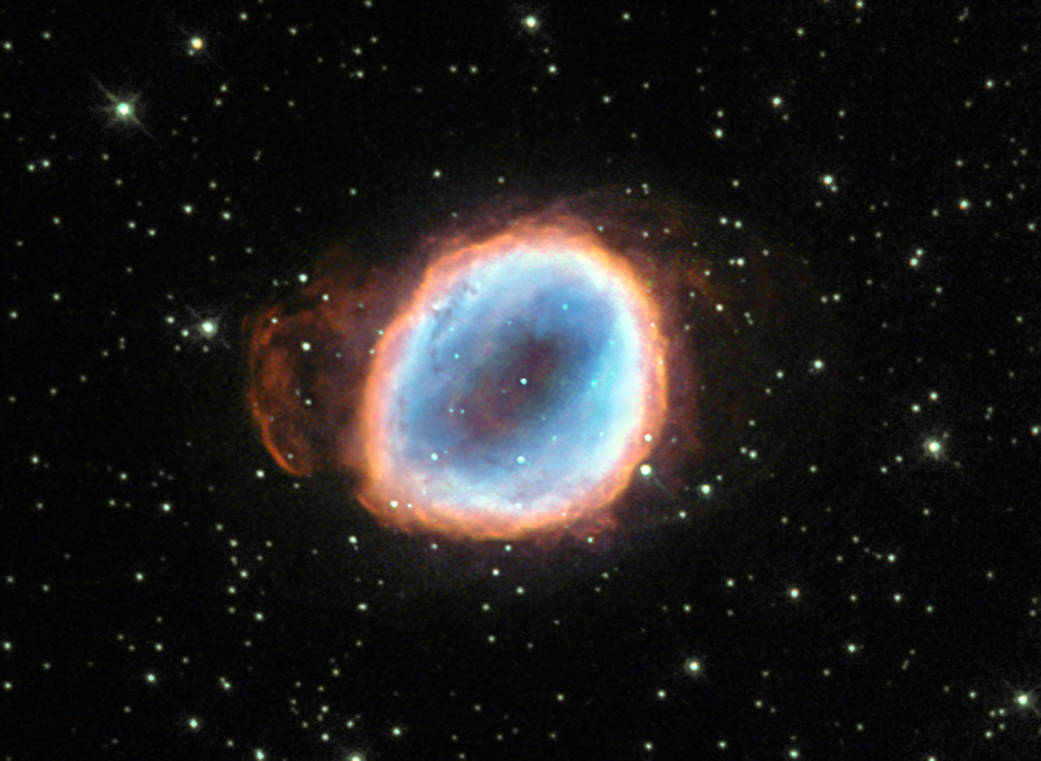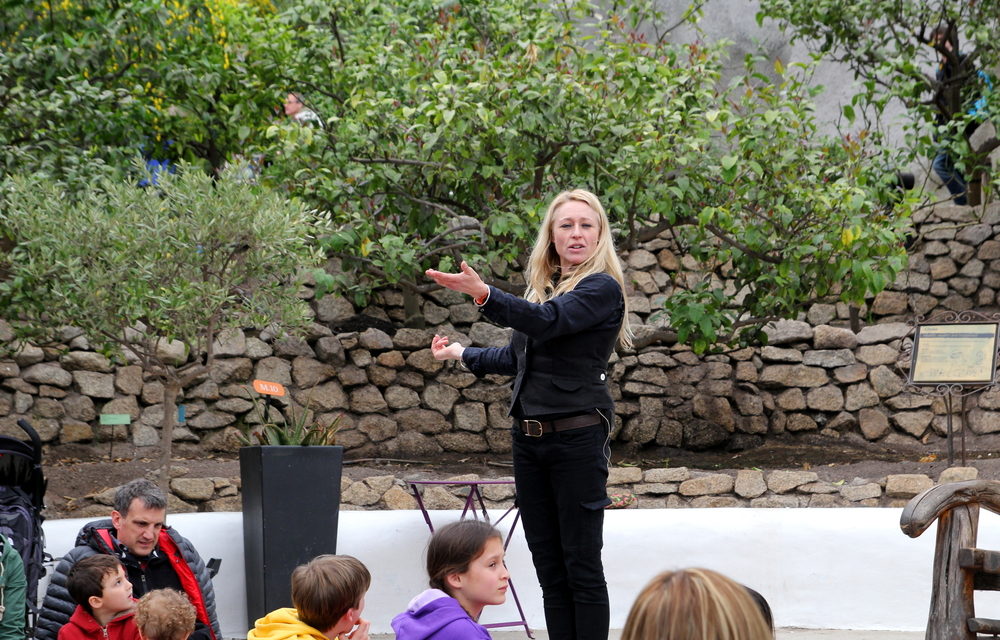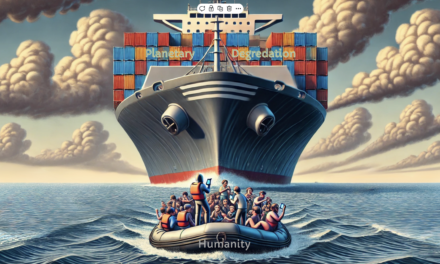The first book of the Bible gives an account of the creation of the cosmos and, ultimately, humankind. On the other hand, we now have empirical evidence that the cosmos came into being some 14 billion years ago; that galaxies and stars emerged from the initial particles; that Earth and our solar system emerged from the death of a star; that life emerged from the Earth; and that humankind evolved from the earliest forms of life.


The Bible was written only after humankind had discovered agriculture, which in turn permitted the emergence of civilisation and empire, and human exploitation of not only other human beings, but of all living and inanimate resources to which we had access. Modern technology has increased the human ability to exploit other people and natural resources to such an extent that we are in danger of extinguishing the cradle of life itself.
Early in the development of empire, Jesus understood how the Bible pointed to the central need among humankind to care for each other and for all of creation. In his life he demonstrated the power of love and exemplified how to live free from all exploitation. His followers, convinced by the resurrection of the correctness of Jesus’ understanding, took up the subversive message, and the most successful territorial empire known to the Western world at that time – the Roman Empire, which had executed Jesus – first tried to subdue it, and finally subverted it to its own ends. This has been happening in the West through succeeding historical periods and different empires ever since.


In today’s world, when scientists tell the story of the cosmos, they locate human beings as a “rational animal” that emerged almost by accident from the random activity of inanimate matter – which provides us with no ethical guidance except for self-preservation. This is, however, the most widely accepted story reflected in the mainstream news media and education.
When churches tell the story of humankind in creation, on the other hand, they tell a different story: one based on divine revelation made accessible through the Bible. They focus on “man created in the image and likeness of God” – which leads to our projection of all kinds of human characteristics onto the creator – so that the very word “God” is coloured by anthropocentric thinking and people choose to worship the God they are most attracted to, or reject the notion of any ultimate creator to whom humankind is responsible.

Neither of these stories is universally accepted, even within the West.
Thomas Berry (1914 – 2009) argued passionately that we need a New Story that provides a shared meaning for humankind of whatever faith (or none) to pursue their own different activities as fruitful and responsible members of the earth community.







Hi Terry,
This post resonates strongly with me. Some years ago I remember listening to a broadcast by an anthropologist who was speculating why homo sapiens are the dominant species on the planet. It seems that a million or so years ago, at the time we were evolving, there were several species of upright, intelligent ape (the two we hear about are Neanderthals and Denisovens, there could have been many more) His theory for our dominance was that we were the ones who learnt how to tell stories. Bonds of kinship and common interest can only unite a relatively small group in a common cause – I think he estimated the largest fighting unit the Neanderthals could muster would have been in the hundreds. A story about ones origins, the purpose of life and society such as all the great religions of the World have as well as for example the Greek and Roman myths but also as we have seen more recently, Nationalism, Communism and National Socialism, have the power to unite not hundreds but millions of people.
Whether this theory is right or not, certainly humans love and need stories to believe in and we know it is the power of stories that have built, sustained and destroyed civilisations. However the power of these stories is their problem – different groups have different but equally passionately believed stories. Just one example, witness the problems caused in the Middle East by perhaps the longest and most powerful story – that of the Jewish people. When my story is that I have been given this land, there is no room for discussion and ultimately only one outcome, conflict.
Does Berry has offer any suggestions as to what a unifying story for all mankind might look like and how universal belief might be brought about? Our existing stories, while being regional (or “tribal”) have a lot of common features and the faith based ones in particular (Judaism, Christianity, Islam, Hinduism, Buddhism …) operate at a number of levels – explanation of the “why” of the Universe, hope of life beyond this one, an ethical framework for their followers, a legal system and social structure.
I describe myself as an Agnostic in belief but an Atheist in action. The questions as to why there is something rather than nothing, did the Universe create intelligent life or was it created by an intelligence, are I suspect ultimately un-answerable or at least not understandable by us. The long slow application of the scientific method has as you point out, pushed our knowledge an enormous way, but the nature of time, space, mathematics, remain and probably will remain unanswered. As you know I struggle with concepts of faith and spirituality, I cannot distinguish faith from hope and have never had any experience that might change that. While I am quite prepared to think (hope maybe) that the Universe was created by God (for want of a better word) and has purpose, as we cannot know if in fact this is the case, to proceed on the assumption that it is, while it may be comforting from a personal perspective, leads to conflict and division amoung the peoples of the World.
I take issue with your suggestion that if we reject the idea of “God” there is no basis for ethics “except for self-preservation”. This would seem to suggest that people of faith would be more moral than those who do not subscribe (to which faith?) when the evidence is, if anything, quite the contrary. People of faith have throughout history acted with appalling barbarity against those of different faiths. Actually self preservation is pretty important, and I think it is possible to build an ethical framework (including, or even centrally the uniquely Christian concept of forgiving your enemy) on the need to sustain human life on this planet and a recognition of the interconnectedness of everything. However I think that our basic “good” human instinct to act in a compassionate way to each other, which is expressed similarly in all religions as well as Greek and subsequent Western philosophical thought, stems from something more basic. When we look at another human being – or indeed at other life forms we see a living entity that is similar to ourselves and uniquely different to everything else in the Universe. There are of course other powerful influences and instincts that counter this and the function of universal story has to be to re-enforce this “good” instinct that ultimately does underpin our species survival.
So what might a Universal Story look like. Well a good start for a “creed”, is I think the Universal Declaration of Human Rights – a document that stands equal to any religious text and which is universally accepted, if not acted on. However we also need some commandments – a Universal Declaration of Human responsibilities maybe to embody the ethical framework that I think is common across all religions.
However all the great stories have a lot more – prophets, apostles, saints, sinners, heroes, villains, battles, priests, prayers, hymns and anthems, rituals ceremonies…. They inspire works of art, literature, architecture, provide hope to the poor and suffering, they promise of an afterlife and lead men to self sacrifice and death.
Bit of a tall order for us humanists I am afraid. Perhaps to survive the human race needs to stop believing in stories, like a child stops believing in Father Christmas and face a cold Universe bravely like an adult, with realism relying on our own resources and reason.
Thanks for the encouragement, Colin. It is good to pick up our discussions from 45 years ago in the light of what we have both learned through our life’s experience since.
You ask whether Thomas Berry’s ‘New Story’ offers suggestions as to how universal belief might be brought about. In a sense he does – by framing an account of cosmology that shows the evolution of humans within the continual evolution of the Universe. The clearest way I have yet seen it spelled out is in the Yale University family of products called ‘Journey of the Universe’. There are three parts to this:
• a book (https://smile.amazon.co.uk/Journey-Universe-Mary-Evelyn-Tucker-ebook/dp/B0058GLUGE/ref=sr_1_3?keywords=journey+of+the+universe&qid=1561374468&s=digital-text&sr=1-3)
• a web site (https://www.journeyoftheuniverse.org) and
• a series of three online courses (https://www.coursera.org/specializations/journey-of-the-universe).
What I am trying to do in my own thinking and studying is to re-tell the story of Jesus and the birth of the church in the context of this story, based in the historical, social and cultural development of early human empires.
You are right to take issue with my statement that “if we reject the idea of “God” there is no basis for ethics “except for self-preservation”. I accept everything that you say. In fact, I expressed myself badly, since I did not intend to imply what you have rightly taken the words to imply. I was trying (clumsily) to make a different point.
What I was trying to say was that in rejecting the concept of God, or the existence of any reality other than deterministic materialism (in the scientific sense, rather than the cultural and philosophical sense) it is all too easy to end up with a human-centred view of the universe in which as the only species with reflective self-consciousness, the focus of ethics is all about humankind. Indeed, by pointing to the “Universal declaration of human rights” as a good starting point, you reinforce what I was actually trying to say.
By way of contrast, Thomas Berry calls for a “new intellectual-ethical framework for the human community by positing planetary well-being as the measure of all human activity.” The publisher’s blurb for one of his later works, “The Dream of the Earth”, puts it this way: “Drawing on the wisdom of Western philosophy, Asian thought, and Native American traditions, as well as contemporary physics and evolutionary biology, Berry offers a new perspective that recasts our understanding of science, technology, politics, religion, ecology, and education. He shows us why it is important for us to respond to the Earth’s need for planetary renewal, and what we must do to break free of the “technological trance” that drives a misguided dream of progress. Only then, he suggests, can we foster mutually enhancing human-Earth relationships that can heal our traumatized global biosystem.”
I don’t want to get lost in “fandom” for Berry, but the work that has been spawned from his insights provides me, for the first time, with a way to integrate the two strands to my own life’s work: seeking to improve wellbeing through the management of economic activity facilitated by science and technology, and translating the glimpses of eternal wisdom evidenced in the life, teaching and execution of Jesus into a “moral compass” (or more accurately, as I now see it, “one element of a moral compass”) to help us live better lives. The Forum on Religion and Ecology at Yale (http://fore.yale.edu) points to the tremendous variety of work being done in numerous fields as a result of Berry’s insights. I was massively impressed, during the second of the three online courses (I have taken all three of them), with a series of in-depth interviews with educators, architects, scientists, town planners and many others.
I take a different tack from you on whether or not we should stop believing in stories. I completely agree about the damage done by the stories people tell. Indeed, on this web site are two studies in the “Current Issues” series that touch on stories, context and identity: “Study 7: The Instinct to Belong”, and “Study 8: In Christ Alone?”. I wrote both of these before I had ever heard of Thomas Berry and I was trying to undo the damage done to both individuals and to society by many of the Church’s stories about the meaning of Scripture
The more we learn about cognitive neuro-science, however, the more we see both the amazing power and complexity of the human brain, but also the inherent limitations of the HumanOS. Stories appear to be right at the heart of both creativity and meaning. They are also central to all of our lives – just look at the vast proportion of people’s time and energies spent in watching movies or TV, reading fiction or telling our children stories before they go to bed!! I suspect it is more realistic to set about learning how to live as creative and constructive members of the earth community, using all our resources (including stories, art, humanities, mathematics, science and technology) to guide us towards a planet that is capable of living in harmony with itself for as long as the Sun provides us with the energy to sustain life.
We can have another debate about the role of reason, of metaphor and of emotion another day, but I hope this has provided a different perspective on some of the points you raise.
Thanks for taking the time to respond so thoughtfully.